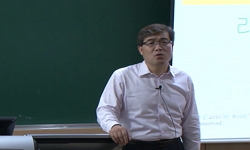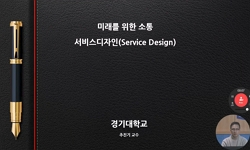This research is experience research on the ethical dilemmas that art therapists are facing. The main purpose of the research is studying vividly the ethical dilemmas that art therapists are facing in the process of art therapy and providing base data...
http://chineseinput.net/에서 pinyin(병음)방식으로 중국어를 변환할 수 있습니다.
변환된 중국어를 복사하여 사용하시면 됩니다.
- 中文 을 입력하시려면 zhongwen을 입력하시고 space를누르시면됩니다.
- 北京 을 입력하시려면 beijing을 입력하시고 space를 누르시면 됩니다.
https://www.riss.kr/link?id=A103766741
- 저자
- 발행기관
- 학술지명
- 권호사항
-
발행연도
2014
-
작성언어
Korean
- 주제어
-
등재정보
KCI등재
-
자료형태
학술저널
- 발행기관 URL
-
수록면
191-214(24쪽)
-
KCI 피인용횟수
12
- DOI식별코드
- 제공처
-
0
상세조회 -
0
다운로드
부가정보
다국어 초록 (Multilingual Abstract)
This research is experience research on the ethical dilemmas that art therapists are facing. The main purpose of the research is studying vividly the ethical dilemmas that art therapists are facing in the process of art therapy and providing base data demonstrating the intervention methods for ethical practice in art therapy. Hence, the main purpose is to look into the experience of art therapists: how much they know about ethics, what cases they are facing about ethical dilemmas, and how to solve it. This research has been conducted on 10 selected art therapists who voluntarily opted to participate therein in the hope of promoting the intent of the study, majored in and obtained master’s degrees or doctor’s degrees in art therapy and are currently engaged in art therapy. The focus group interview for research has been selected as one of the qualitative research method, analyzing the discussion by each two group which consists of five members. 40 concepts, 18 categories and 8 subjects are drawn as a result of the research as follows: - Art therapists who participated in this research are suffering from confusion due to the lack of specific contents of ethical education which is provided both in the course of master’s or doctor’s degree and academic society. One of the biggest dilemma is that there is no specific ethics regulation for works of art made by clients in process of art therapy. It was also pointed out that secret security, disclosure of clients’ private information occurring in the course of case presentation, insufficiency of respect for clients’ desire and guarantee of autonomy in art therapy at a school. Especially, ethical dilemmas occur when someone requests for the contents of other’s art therapy or sharing works of art among art therapists whereas some ethical dilemmas are caused by the viewpoint difference between the chief of the institution and art therapists. The research also shows that art therapists are suffering from dilemmas due to personal confusion and ambiguity of boundary of art therapy and experience of dual relationship.
국문 초록 (Abstract)
본 연구는 미술치료사가 미술치료과정에서 경험한 윤리적 갈등에 대한 것을 연구한 것이다. 이를 위한 구체적 목적은 미술치료사가 미술치료과정에서 경험하는 윤리적 갈등은 어떤 것이 있...
본 연구는 미술치료사가 미술치료과정에서 경험한 윤리적 갈등에 대한 것을 연구한 것이다. 이를 위한 구체적 목적은 미술치료사가 미술치료과정에서 경험하는 윤리적 갈등은 어떤 것이 있는지를 생생하게 연구하고 이를 통해 미술치료의 윤리적 실천 행동을 위한 개입방법의 근거자료를 제공하고자 하는 것이다. 이에 미술치료사의 윤리적 인식은 어느 정도인지, 윤리적 갈등을 경험한 경우는 어떤 것이 있는지에 대한 체험을 알아보는 것이 주요 목적이다. 연구대상은 석, 박사과정에서 미술치료를 전공하였고 현재 미술치료를 하고 있는 미술치료사이며, 연구의 취지를 알리고 참여를 희망한 10명을 대상으로 실시하였다. 연구방법은 질적 연구 방법 중 포커스 그룹 인터뷰 방식을 선택하여 5명씩 2개의 그룹을 통해 토의 내용을 분석하였다. 연구결과 40개의 개념과 18개의 범주, 8개의 주제가 도출되었으며 도출된 내응은 다음과 같다. 연구에 참여한 미술치료사들은 미술치료사 윤리교육에 대해 석, 박사 교과과정이나 학회교육 모두에서 제시하는 명확한 내용의 부재로 인해 혼란을 경험하고 있으며, 가장 큰 갈등은 미술치료과정에서 제작된 내담자의 미술작품에 대한 명확한 윤리규정이 없는 것이다. 또한 비밀보장과 사례발표 시 내담자의 개인사항에 대한 노출, 학교 미술치료 시 내담자의 욕구존중이 부족하고 자율성 보장이 되지 않는 것을 언급하였다. 특히 치료사들 간에 타 미술치료사의 미술치료 내용을 요청하거나 작품공유를 요구할 때 갈등을 겪고 있었고, 시설기관장과 치료자와의 치료관점 차이에서 야기되는 갈등도 나타났다. 또한 본 연구에서 미술치료사들은 개인적 혼란과 미술치료 경계의 모호성 그리고 이중관계의 경험으로부터 갈등을 겪는 것으로 나타났다.
참고문헌 (Reference)
1 최해림, "한국 상담자의 상담윤리에 대한 기초 연구" 한국상담심리학회 14 (14): 805-828, 2002
2 강진령, "학교상담자 윤리 교육 및 인지 실태 분석" 한국상담학회 8 (8): 751-768, 2007
3 방기연, "집단상담에서의 상담 윤리강령" 17 (17): 99-111, 2004
4 김준혜, "상담자 발달수준, 마음챙김 및 역전이 관리능력과의 관계" 이화여자대학교 2009
5 장혁표, "상담에서의 윤리적 문제-상담자 자질, 비밀보장, 이중역할관계를 중심으로-" 38 : 1-15, 1999
6 이혜선, "미술치료사의 치료경험과 역전이 관리 능력이 치료성과에 미치는 영향" 한국미술치료학회 17 (17): 149-164, 2010
7 김태은, "미술치료사의 수퍼비전 체험 연구" 서울여자대학교 특수치료전문대학원 2009
8 한국미술치료학회, "미술치료사 윤리강령"
9 Corey, G., "Theory and practice of counseling and psychotherapy" 2008
10 Corey, G., "Theory and practice of counseling and psychotherapy" Brooks/ Cole Publishing Company 1991
1 최해림, "한국 상담자의 상담윤리에 대한 기초 연구" 한국상담심리학회 14 (14): 805-828, 2002
2 강진령, "학교상담자 윤리 교육 및 인지 실태 분석" 한국상담학회 8 (8): 751-768, 2007
3 방기연, "집단상담에서의 상담 윤리강령" 17 (17): 99-111, 2004
4 김준혜, "상담자 발달수준, 마음챙김 및 역전이 관리능력과의 관계" 이화여자대학교 2009
5 장혁표, "상담에서의 윤리적 문제-상담자 자질, 비밀보장, 이중역할관계를 중심으로-" 38 : 1-15, 1999
6 이혜선, "미술치료사의 치료경험과 역전이 관리 능력이 치료성과에 미치는 영향" 한국미술치료학회 17 (17): 149-164, 2010
7 김태은, "미술치료사의 수퍼비전 체험 연구" 서울여자대학교 특수치료전문대학원 2009
8 한국미술치료학회, "미술치료사 윤리강령"
9 Corey, G., "Theory and practice of counseling and psychotherapy" 2008
10 Corey, G., "Theory and practice of counseling and psychotherapy" Brooks/ Cole Publishing Company 1991
11 Sperry, L., "The ethical and professional practice of counseling and psychotherapy" Allyn & Bacon 2007
12 Morgan, D. L., "The Focus Group Guidebook (Focus group kit 1)" Sage 1998
13 Driver, C., "Supervision and the analytic attitude" Whurr 2005
14 Malchiodi, C. A., "Supervision and related issues: A handbook for professionals" Magnolia Street 1996
15 Morgan D. L, "Planning focus groups(Focus group kit 6)" Saga Publication 1996
16 Corey, G., "Issues and ethics in the helping professions" Brooks/Cole 1998
17 Kruger, R. A., "Focus groups" Sage publications 2000
18 Bodenhorn, N., "Exploratory Study of Common and Challenging Ethical Dilemmas Experienced by Professional School Counselors" 10 (10): 195-202, 2006
19 Stadler, H. A., "Ethnical standards casebook" AACD Press 102-110, 1990
20 Pope, K. S., "Ethics in psychotherapy and counseling: Practical guide for psychologists" Jossey-Bass 1991
21 American Art Therapy Association, "Ethics Corner"
22 Jackson, Y., "Ethical practices reported by play therapist: An outcome study" 10 (10): 31-51, 2001
23 Moon, B., "Ethical issues in art therapy" Charles C. Thomas 2003
24 Kalmanowitz, D., "Ethical considerations in the global teaching and promotion of art therapy to non-art therapists" 37 : 20-26, 2010
25 Cottone, R. R., "Counseling ethics and decision making" Pearson Prentice Hall 2007
26 Wilson, L., "Confidentiality in art therapy" 25 : 75-80, 1987
27 Wagner, C. A., "Confidentiality and the school counselor" 59 (59): 305-310, 1981
28 Fédération française des Art-thérapeutes, "Code de déeontologie des Art-théerapeutes"
29 McNiff, S., "Art as medicine : Creating a therapy of the imagination" Shambhala 1992
30 Moon, B., "Art and Soul: Reflections on an artistic psychology" Charles C thomas 1997
31 Kruger, R. A., "Analyzing & Reporting Focus Group results(Focus group kit 6)" Saga Publication 1998
32 이혜선, "AATA, FFAT, KATA의 미술치료사 윤리강령에 대한 고찰 -2011년 개정된 윤리강령을 중심으로-" 한국미술치료학회 19 (19): 1625-1646, 2012
동일학술지(권/호) 다른 논문
-
중학생의 사회불안과 이야기 그림검사(Draw-a-Story)의 반응특성의 관계
- 한국미술치료학회
- 최윤녕
- 2014
- KCI등재
-
다중지능이론에 기초한 미술프로그램이유아의 그림표현능력에 미치는 효과
- 한국미술치료학회
- 김인숙
- 2014
- KCI등재
-
집단미술치료가 대학 운동선수의 스트레스, 우울 및 자아존중감에 미치는 영향
- 한국미술치료학회
- 김선명
- 2014
- KCI등재
-
청소년의 진로성숙도 수준에 따른 다리그림검사의 반응특성 연구
- 한국미술치료학회
- 최은우
- 2014
- KCI등재
분석정보
인용정보 인용지수 설명보기
학술지 이력
| 연월일 | 이력구분 | 이력상세 | 등재구분 |
|---|---|---|---|
| 2027 | 평가예정 | 재인증평가 신청대상 (재인증) | |
| 2021-01-01 | 평가 | 등재학술지 유지 (재인증) |  |
| 2018-01-01 | 평가 | 등재학술지 선정 (계속평가) |  |
| 2017-12-01 | 평가 | 등재후보로 하락 (계속평가) |  |
| 2013-01-01 | 평가 | 등재 1차 FAIL (등재유지) |  |
| 2010-01-01 | 평가 | 등재학술지 유지 (등재유지) |  |
| 2007-01-01 | 평가 | 등재학술지 선정 (등재후보2차) |  |
| 2006-01-01 | 평가 | 등재후보 1차 PASS (등재후보1차) |  |
| 2004-01-01 | 평가 | 등재후보학술지 선정 (신규평가) |  |
학술지 인용정보
| 기준연도 | WOS-KCI 통합IF(2년) | KCIF(2년) | KCIF(3년) |
|---|---|---|---|
| 2016 | 0.7 | 0.7 | 0.78 |
| KCIF(4년) | KCIF(5년) | 중심성지수(3년) | 즉시성지수 |
| 0.8 | 0.8 | 0.922 | 0.08 |




 KCI
KCI 스콜라
스콜라




